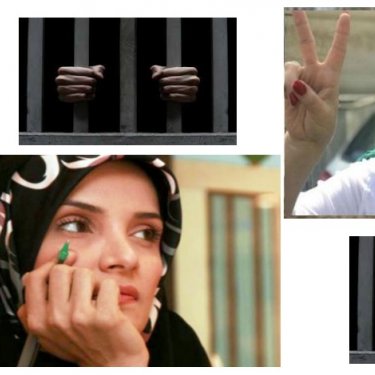More Iranian journalists arrested, mistreated in prison

Reporters Without Borders (RSF) condemns the arbitrary arrests of four journalists in northern Iran on 26 December – which has brought the number of journalists held since the start of a wave of anti-government protests in mid-November to 12 – and the inhuman and degrading treatment of two prominent women journalists in Tehran’s Evin prison in the past two weeks.
Journalists Jelveh Javaheri, Kaveh Mzadari, Forough Sameinia and Ahmad Zahedi Langroudi were among the many people arrested during a ceremony held in Sowme'eh Sara, in the northern province of Gilan, to pay tribute to a demonstrator killed during a protest on 16 November. Javaheri, Mzadari and Sameinia work for online media including Bidarzani (Women’s Awakening), while Langroudi edits the provincial monthly GhilanOuja.
The authorities released all those they had arrested except the four journalists, for whom payment of 100 million tomans (27,000 euros) in bail was demanded. They have been transferred to Lakan prison near Rasht, the province’s largest city, where they are still being held without their lawyers or families knowing why.
Their detention is just one of the many measures taken by the Iranian authorities to step up their harassment of journalists since the start of the wave of anti-government protests.
Another example is the beating that imprisoned journalist and human rights activist Narges Mohammadi received from prison officials in Tehran’s Evin prison, which took place when she responded to a summons to meet with her lawyer in the prison director’s office on 25 December.
Instead of her lawyer, she found prison director Gholamreza Ziayi and a ministry of intelligence representative, who told her she was going to be transferred to Zanjan prison, 300 km northwest of Tehran. When she was objected, the prison director and guards began beating her repeatedly and then bundled her into an ambulance that took her to Zanjan.
In an open letter from Zanjan prison, Mohammadi has described the unprecedented attack to which she was subjected during this surreal episode. Although a forensic doctor’s report confirms that she sustained bruising and other signs of physical trauma, both the Evin prison administration and the justice ministry’s spokesman deny that the attack took place.
The 47-year-old Mohammadi, who was also the spokesperson of the Centre for Human Rights Defenders in Iran, has been held since May 2015 and is serving a ten-year jail sentence. A Tehran court initially sentenced her to 16 years in prison on a range of charges including anti-government propaganda, membership of banned group opposed to the death penalty, and “participating in a meeting and colluding against national security.” It was reduced to 10 years under a 2015 law, which says a person convicted on several charges serves only the sentence applied to the most serious one.
The other latest addition to the long list of journalists subjected to inhuman treatment and humiliation in Iran’s prisons is Hengameh Shahidi, who has been detained for the past 18 months. On 1 January, she was supposed to have been taken from Evin prison to a hospital for tests for her heart condition– tests for which she had been waiting for months.
But, instead of being taken to a cardiology unit, she was taken to a psychiatric hospital. It was only after vehement protests and resistance that she was finally taken back to Evin prison, her lawyer, Mostafa Turk Hamedani, reported.
Shahidi, who is also a women’s rights activist and former adviser to reformist politician Mehdi Karoubi, was arrested in June 2018 and was sentenced in December 2018 to 12 years and nine months in prison for “insulting the judicial system and its representatives” over the jailing of activists and journalists. She is suffering from several ailments and is in very poor heath, her family and lawyer say.
“Javaid Rehman, the UN special rapporteur on the human rights situation in Iran, must intervene as a matter of urgency,” said Reza Moini, the head of RSF’s Iran/Afghanistan desk. “The inhuman and degrading treatment of prisoners of conscience, including journalists and citizen-journalists, constitutes a flagrant violation of the Universal Declaration of Human Rights and the International Covenant on Civil and Political Rights, to which Iran is a party.”
Iran is ranked 179th out of 180 countries in RSF’s 2019 World Press Freedom Index.



